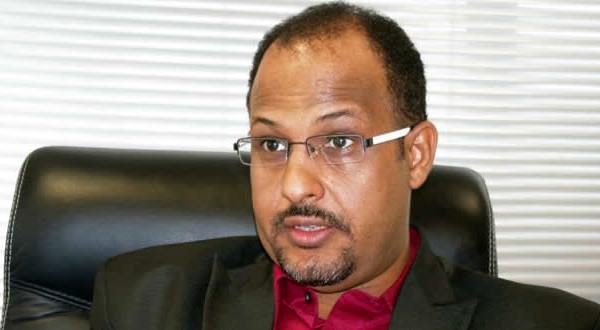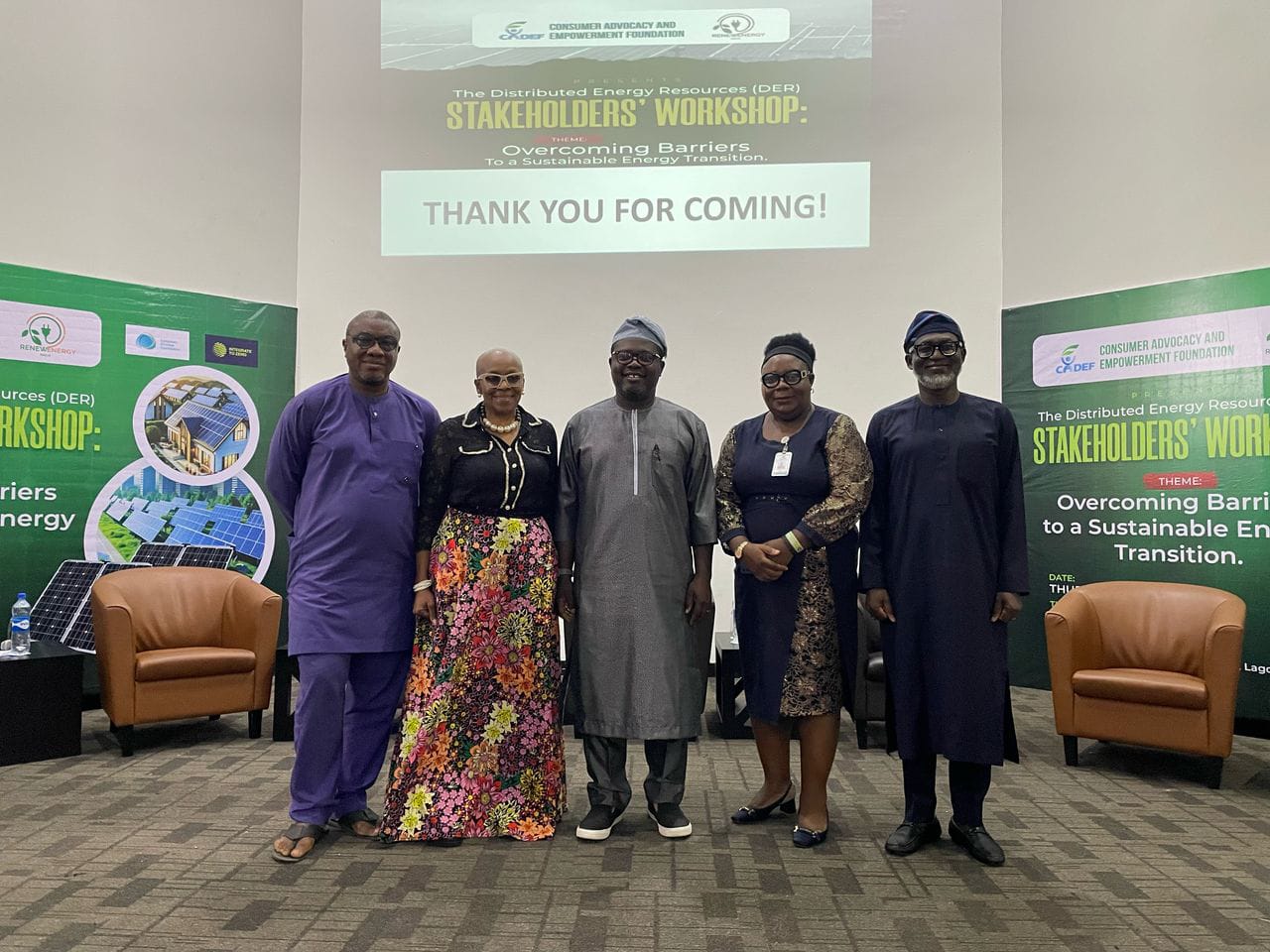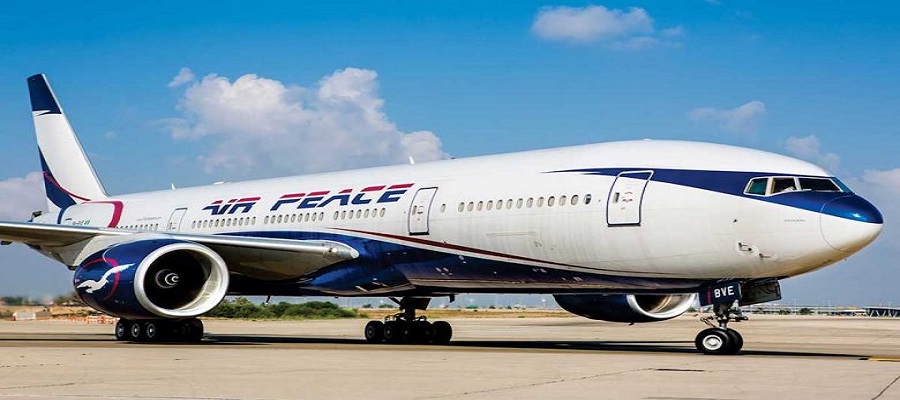This is contained in a statement signed by Dr Ejike Ndiulo, head of Corporate Communications, Air Peace, on Wednesday in Lagos.
According to Ndiulo, the decision is necessary because NiMet is the agency responsible for issuing CNH (Current Nowcast of Hazardous Weather) reports, critical for safe landings, especially during this season of heavy rainfall and thunderstorms.
He said without these reports from the control tower, flight safety could not be guaranteed.
“As a safety-first airline, we have chosen to act responsibly by suspending operations until NiMet resumes full service.
“We understand this may cause inconvenience, and we sincerely apologise. Passengers will be contacted with updates and options for rescheduling,” he said.
The staff of NiMET on Tuesday commenced an indefinite strike over the condition of service and other demands.
News
IXPN Prepares for 10th Africa Peering & Interconnection Forum

Internet Exchange Point of Nigeria (IXPN) has expressed its readiness for the 10th anniversary edition of the Africa Peering and Interconnection Forum (AfPIF) to be hosted in Mauritius from 20-22 August 2019, which is being organised by the Internet Society and African IXP Association (AFIX) in collaboration with Rogers Capital.
Mohammed Rudman, managing director, IXPN, told Nigeria CommunicationsWeek that IXPN will be represented at the forum which exposes the exchange to global trends in peering and data centre.
“It is at this forum that internet exchange points in Africa meet and review their peering and interconnection agreements. It is also an avenue to discourse interconnections with each other especially with internet content providers such as Facebook, Amazon, Google, Netflix among others who are expected at the forum,” he said.
AfPIF 2019 will connect and bring key infrastructure, service, and content providers together with policymakers in order to identify and discuss ways to improve network interconnection, lower the cost of connectivity, and increase locally available content, for the benefit of Internet users across the region.
AfPIF is an annual event that serves as a platform to develop the African Internet, and was created to address the fact that most of Africa’s local Internet traffic is exchanged outside the continent.
At the same time, Africa imported over 99% of the Internet traffic consumed, which created an “Internet Transit Deficit”. Exchanging traffic locally through Internet Exchange Points (IXP), reduces Internet access costs and network delays and increases content access speeds.
“AfPIF has contributed considerably in changing the Interconnection environment in Africa over the last 10 years. Locally traffic exchanged traffic has increased from less than 1 GB to close to 800 GB today,” explained Dawit Bekele, Africa Regional Bureau Director for the Internet Society.
“This is a remarkable The achievement thanks to the strong community established around AfPIF and I am sure that this year’s event will contribute to an even more interconnected African Internet,” he added.
This is the first time that the event is being held in Mauritius and the Indian Ocean Islands region, which is seeking to develop its role as an innovation hub for the region.
The Minister of Technology, Communication and Innovation, Hon. Yogida Sawmynaden is due to speak at the event and Rogers Capital will act as the local host.
“We are pleased to host AfPIF 2019 in Mauritius especially with the special privilege that this year’s event will coincide with the celebration of its 10 years of existence. As a diversified and sophisticated business hub for the region, we believe Mauritius may help open new business perspectives for the AfPIF delegates.
We are looking forward to welcoming the delegates in August 2019 and to providing our support for the development of Internet Infrastructure in Africa,” said Dev Hurkoo, Managing Director, Rogers Capital-Technology.
Over 250 participants from across the African continent are expected to attend the event, with leading technology providers Liquid Telecom, Seacom and Huawei as Platinum sponsors and AFRINIC, Emtel Business, Linx, Microsoft and Rogers Capital as Gold sponsors.
Concluding on the opportunities ahead, Kyle Spencer, Co-Coordinator of the African IXP Association said “our target is to localize 80% of Africa’s Internet traffic by 2020, and I believe we’re well on our way.
Packet Clearing House reports that Africa currently sees the highest growth of domestic bandwidth production in the world, registering a 92% increase from 410 Gbps to 786 Gbps within the last 12 months — and our internal industry benchmarking data corroborates this. It’s an exciting time for Africa, and we look forward to building on this momentum in Mauritius.”
News
Lagos Sets the Benchmark in Renewable Energy as CADEF Launches Transformative Platform

Against the backdrop of Lagos State’s proactive efforts to reform its electricity sector, the Consumer Advocacy and Empowerment Foundation (CADEF) has launched its ‘Renew Energy Nigeria’ platform, a nationwide initiative with potential synergies for the state’s ambitious energy goals.

Professor Chiso Ndukwe-Okafor, CADEF’s Executive Director, introduced the platform in Lagos, highlighting its aim to empower Nigerians with information and access to decentralized renewable energy (DER) solutions. “The launch of this platform marks a significant step towards democratizing access to information and resources within Nigeria’s burgeoning sustainable energy sector.”
The platform’s launch comes as Lagos State, under the Lagos State Electricity Law, is actively establishing a regulatory framework and attracting private sector investment. Kamaldeen Abiodun-Balogun, General Manager of the LSEB, detailed the state’s progress in creating a functional electricity market, ensuring payment security, and addressing infrastructure challenges. “This law enabled us to create policy documents and establish regulatory agencies to initiate the implementation of the Lagos electricity market,” he explained, adding that private sector involvement will be key in areas where existing Discos face performance issues.
Segun Adaju, a private sector player deeply engaged in the energy sector, lauded Lagos State’s leadership. “In all these, Lagos State is always setting the pace. Many of us in the private sector players like myself, we are also looking up to Lagos State to set the pace,” he said, also mentioning his work on the Centralized Renewable Energy Desk for the state government.
While acknowledging national-level challenges such as import restrictions and forex fluctuations as noted by Professor Ndukwe-Okafor: “The recent federal plan on restrictions on the importation of solar products and the fluctuation of forex rate have made clean energy solutions costly”, the focus on Lagos State’s progress suggests a promising local environment for DER adoption, potentially amplified by CADEF’s new platform.
The broader socio-economic context, as highlighted by Olumide Ajayi, “Over 40% of Nigerians do not have access to reliable electricity”, underscored the importance of initiatives like ‘Renew Energy Nigeria’ and the enabling policies being implemented in states like Lagos.
Professor Ndukwe-Okafor concluded with a powerful call to action. “This platform is not an isolated intervention. It is aligned with our ideal country’s national vision, the 30-30-30 initiative. Let us not build a solar future that only serves the wealthy. Let us democratize clean energy. Let us make it local, inclusive, and scalable.”
The launch of “Renew Energy Nigeria” marks a significant step towards a more sustainable and equitable energy future for Nigeria, driven by innovation, collaboration, and a commitment to empowering its citizens. The platform is now live and accessible to all Nigerians seeking reliable and clean energy alternatives
News
EFCC Secures Arrest Warrant for Six CBEX Promoters

A federal high court in Abuja has granted permission to the Economic and Financial Crimes Commission (EFCC) to arrest and detain six Crypto Bridge Exchange (CBEX) promoters over allegations of investment fraud to the tune of over one billion dollars.

Emeka Nwite, presiding judge, gave the order following an ex parte application moved by Fadila Yusuf, counsel to the EFCC.
In the application by the EFCC, the six suspects are Adefowora Olanipekun, Adefowora Oluwanisola, Emmanuel Uko, Seyi Oloyede, Avwerosuo Otorudo and Chukwuebuka Ehirim.
The commission sought an order of the court for a warrant of arrest of the defendants.
They also prayed the court for “an order remanding the defendants in the custody of the complainant/applicant pending the conclusion of investigation of the alleged offences and possible prosecution”.
Yusuf said that the defendants are at large and a warrant of arrest is required to arrest the defendants for proper investigation and prosecution of this case.
In the affidavit in support of the motion, the EFCC said preliminary investigation into the intel revealed that the defendants “using their company ST Technologies International Limited, promoted another company Crypto Bridge Exchange (CBEX) by making adverts and lured unsuspecting members of the public to invest crypto cryptocurrencies on the CBEX investment platform”.
The EFCC said the defendants promised an unrealistic return on investment of up to 100 percent.
“The victims were made to convert their digital assets into a stablecoin of USDT for onward deposit into the suspects’ crypto wallet,” Yusuf said.
“The victims were initially given full access to the platform to monitor their investment.
“Following the deposits valued at over $1 billion by the victims, the CBEX investment platform became inaccessible to them, and they could no longer withdraw from the investment made.
“The victims later discovered that the said scheme is a scam.
“During the course of investigation, it was discovered that the said ST Technologies International Limited, though registered with the Corporate Affairs Commission (CAC), it was not registered with the Securities and Exchange Commission (SEC) for investment purposes.
“It was also discovered during the investigation that the defendants had moved out of their last known address in Lagos and Ogun states.”
The anti-graft agency said obtaining a warrant of arrest was necessary in order to place the defendants on a watch list, enabling authorities to trace and apprehend the suspects to face the charges brought against them.
Nwite granted the request for a warrant of arrest and remand, adding that the order was necessary to enable the commission to apprehend the defendants and conclude its investigation.
“I have listened to the submission of the learned counsel for the applicant,” Nwite said.
“I have also gone through the affidavit evidence with exhibits thereto, along with the written address.
“I am of the view and I so hold that the application is meritorious.
“Consequently, the application is granted as prayed.”
Earlier in April, reports emerged that CBEX users could no longer withdraw their funds.
On Monday, angry investors stormed and looted the office of Smart Treasure (ST Team), an affiliate of CBEX, in Ibadan, Oyo State.
The EFCC recently confirmed receiving multiple complaints about the platform.
Dele Oyewale, the commission spokesperson, assured affected investors that efforts were underway to recover their funds.
News
Air Peace Suspends Flight Operations Nationwide


 Telecom1 day ago
Telecom1 day agoMTN Appoints Egerton Idehen as Chief Broadband Officer

 E-Business2 days ago
E-Business2 days agoALX Nigeria Launches 2025 Ventures Incubator, Premieres Pan-African “Do Hard Things” Finale

 General News1 day ago
General News1 day agoUBA Marks 75 Years of Excellence at 65th AGM

 Telecom1 day ago
Telecom1 day agoMTN Group Suffers Cyberattack

 Telecom1 day ago
Telecom1 day agoMTN Foundation Launches Skills Academy to Bridge Nigeria’s Digital Skills Gap

 Telecom1 day ago
Telecom1 day agoLegend Internet Plc Makes History as First Indigenous Telecom Firm on NGX
- Telecom1 day ago
Tribunal Upholds FCCPC’s $220m Fine against Meta, WhatsApp

 E-Financial2 days ago
E-Financial2 days agoFintechs Add $18m to New Tax Initiative

























